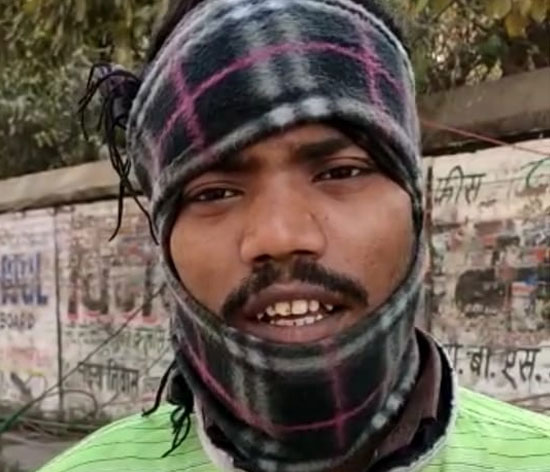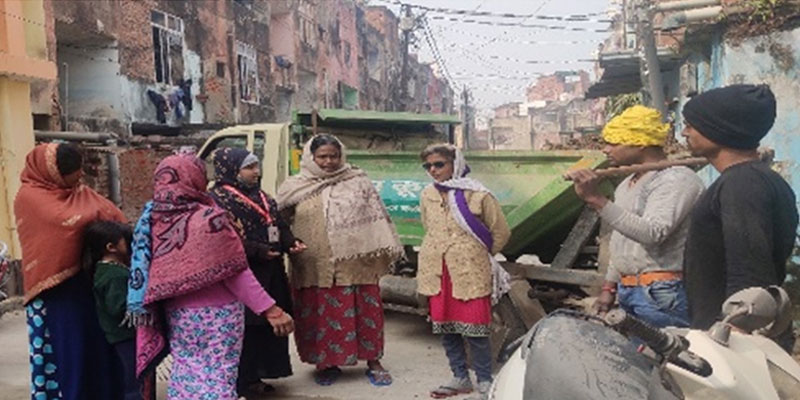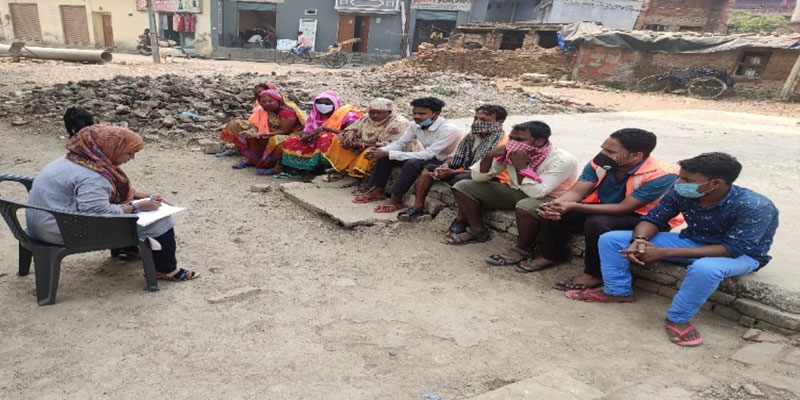
Prem Kumar, a sanitation worker in the Varanasi Development Authority colony in the Sudamapur ward of Nagwa sub-zone of Varanasi, was on the receiving end of considerable flak from the community members. They blamed him for his regular slackness and overall inefficiency.
As a part of the Varanasi Urban Habitat Improvement Strategy, the Trusts undertook an orientation for the safai mitras or sanitation workers, to help them understand the relevance and methods of systematic waste management. Mr Kumar was part of the orientation conducted in his ward by Tata Trusts. The training was followed up by an on-the-job orientation, to better educate the sanitation workers.
When the Trusts’ team members spoke to Mr Kumar, they realised that there was more to his troubling work ethic than was visible on the surface. They found that Mr Kumar was quite clueless about the protocols he had to follow, such as wearing proper sanitation equipment or the system of solid waste management itself. His lack of knowledge and understanding was one of the main reasons behind his general disinterest and lackadaisical attitude.
After similar interactions with the rest of the sanitation workers, the team learnt that they were facing problems with door-to-door collection and were finding it difficult to manage the waste collected from several locations. The workers were also responsible for sweeping the streets; their failure to keep the streets clean led to dissatisfaction among the community.

Safe waste disposal is one of the key ways in which urban habitats can manage and reduce solid wastes. The Trusts team conducted an orientation and training session with the workers and explained to them the processes behind proper solid waste management. They educated the workers in the way in which the waste had to be collected, and the manner in which wet waste, dry waste, and sanitary or medical waste had to be segregated. The team also spoke to each and every household in the region and explained to them the relevance of segregating the waste at the source and the manner in which it had to be done.

The orientation led to visible change on the ground. The waste — now being segregated at source - was collected in separate sections in the worker’s trolley and deposited at the right destinations. The safai mitras were now truly working alongside their community members.
By the end of the project, Mr Kumar’s performance improved exponentially. Not only was he arriving to work on time, but he was efficiently undertaking his duties as a sanitation worker. According to a survey conducted by the team, the same community members who had disapproved his earlier behaviour, now praised him for his transformation. They are happy with the change they can witness in Mr Kumar and he derives considerable energy from their motivation and support.
Due to the intervention by the Trusts, the people of the Varanasi Development Authority colony joined hands with their community workers to solve the problem of safe waste disposal and together took a step closer towards sustainability.
